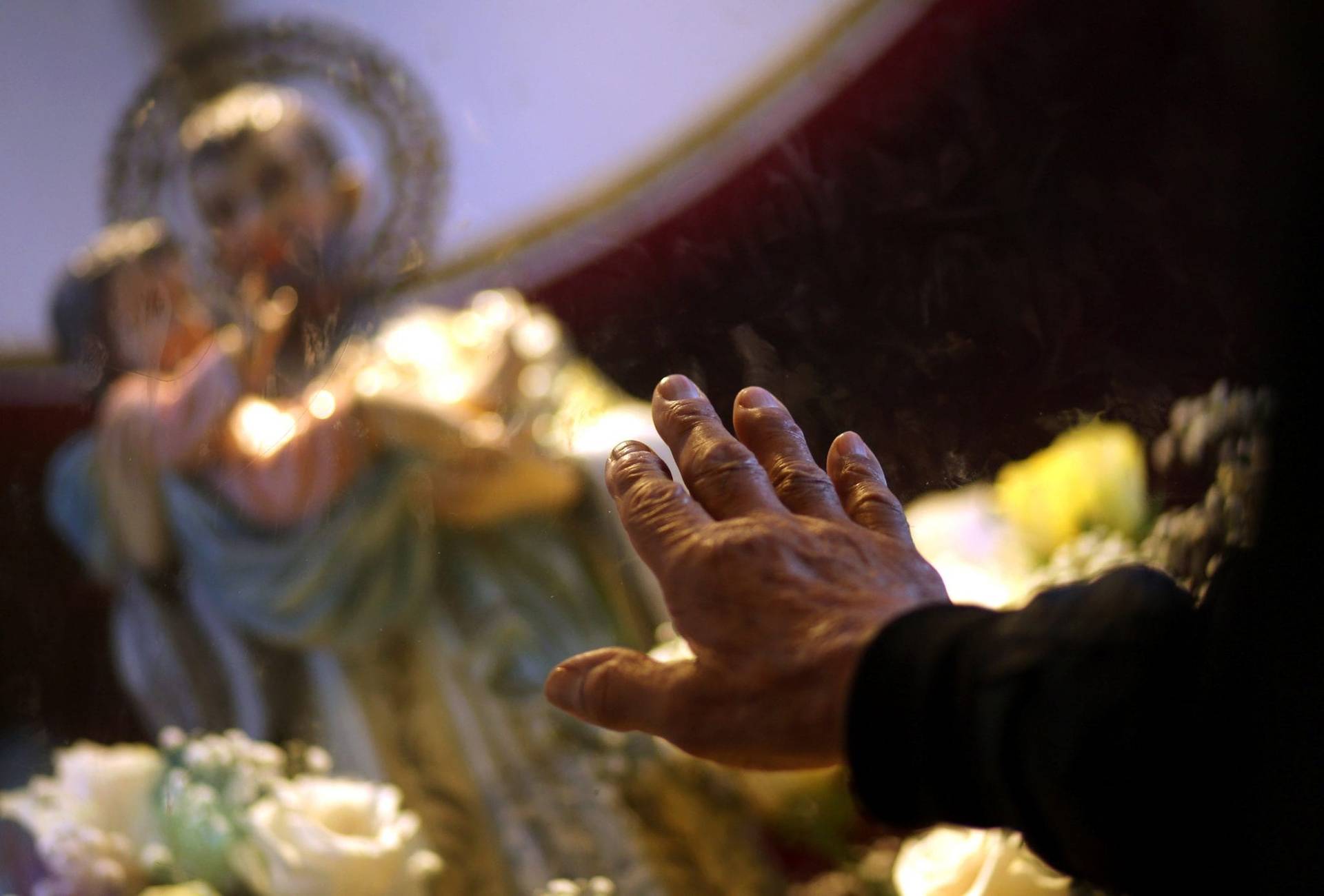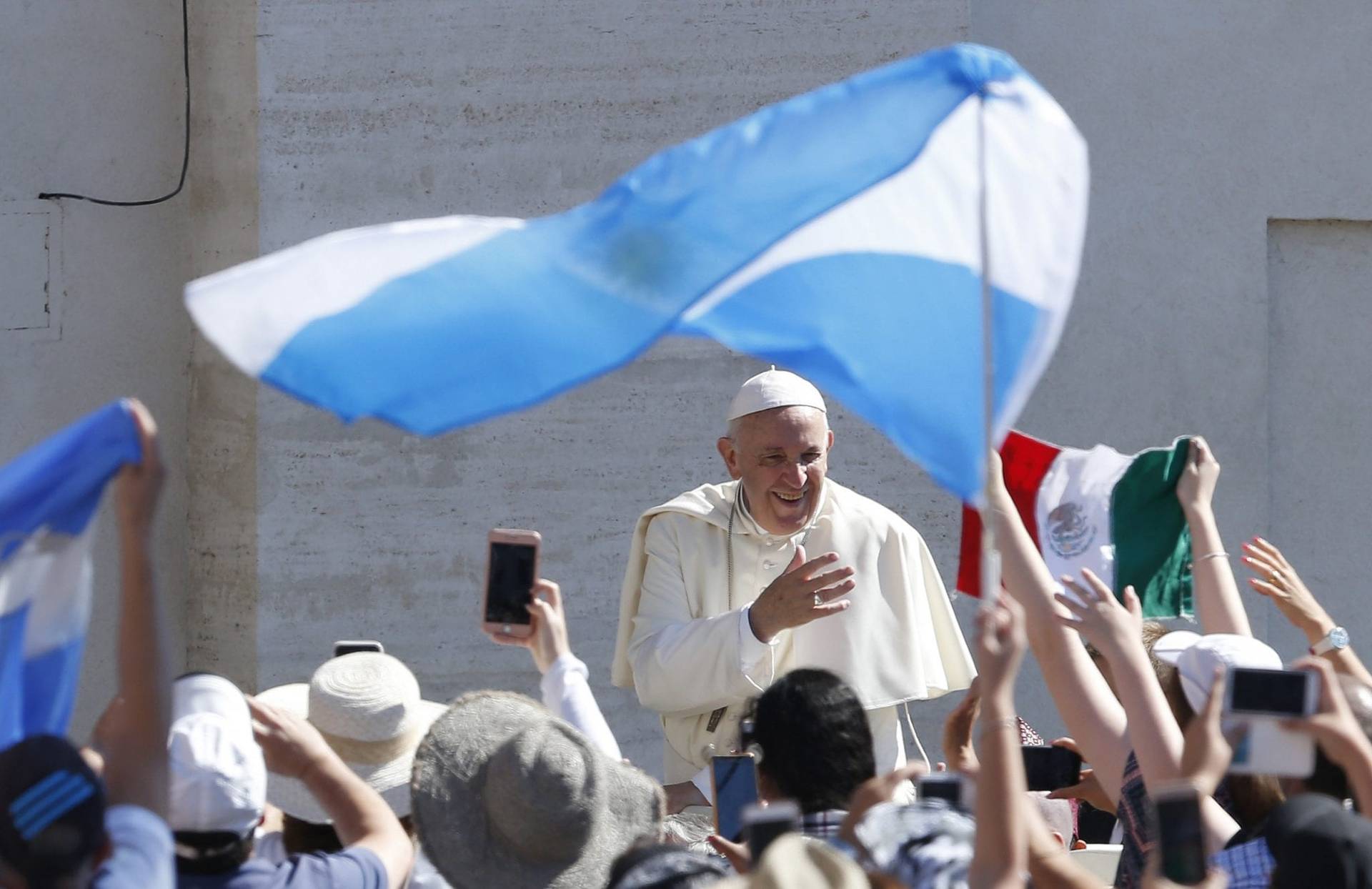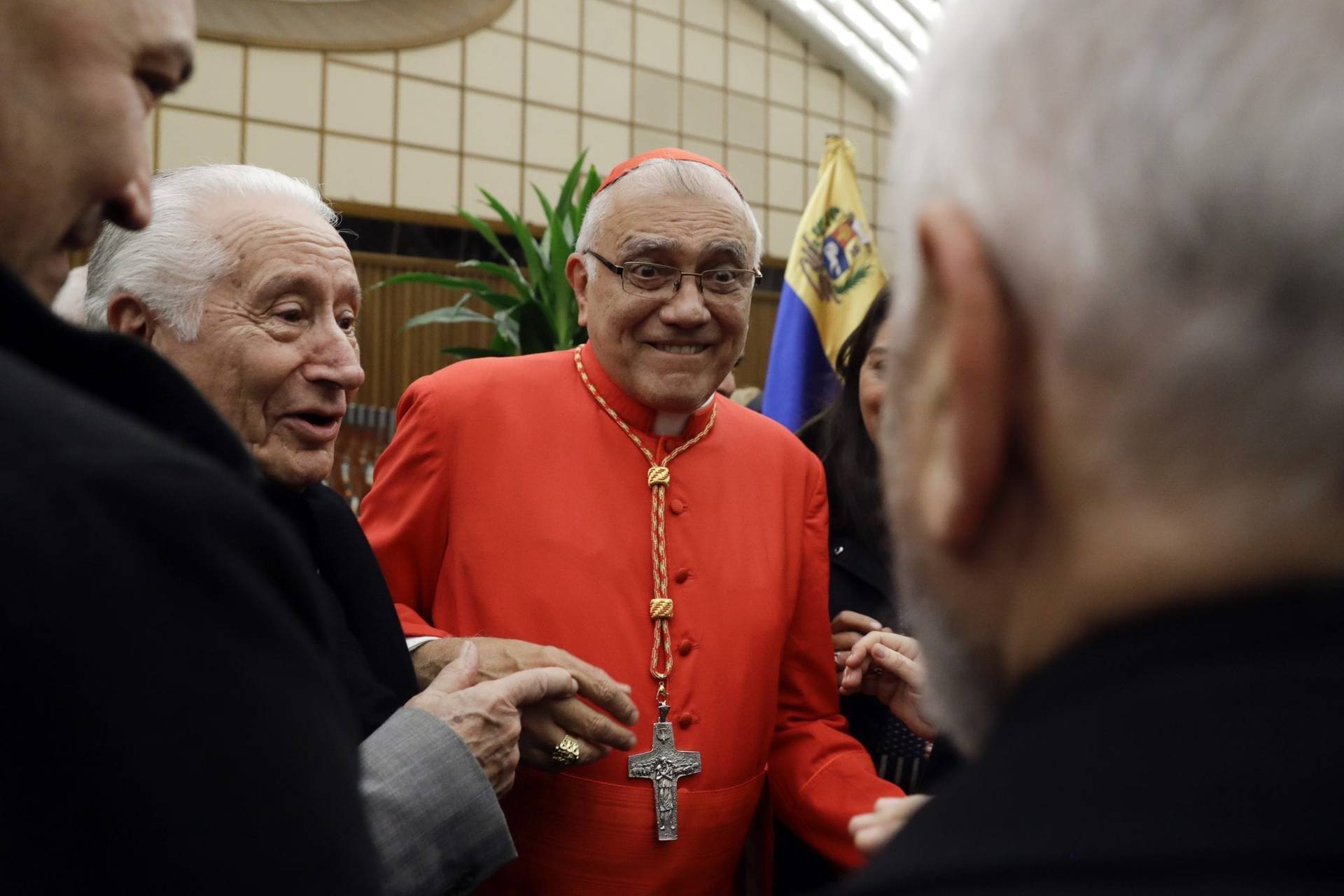ORAN, Argentina – Bishop Gustavo Zanchetta, an Argentine prelate whom Pope Francis transferred to Rome after accepting his resignation due to what he acknowledged was “despotic” behavior, presented himself in court today in the diocese he once led, where he faces charges of “aggravated continuous sexual abuse.”
The charges carry a maximum penalty of 10 years in prison. As the pope revealed in an interview earlier this year, the bishop is also being investigated by the Vatican’s Congregation for the Doctrine of the Faith, that deals with cases of clerical sexual abuse of minors but, on the pope’s request, also cases involving adults.
The bishop left the chambers of Judge Cluadio Parisi in Oran, Salta, northern Argentina, after only 10 minutes and with a smile on his face. He refused to answer questions from the media, instead going straight to the white Audi of an unidentified man who accompanied him to see the judge.
He had been ordered by the judge to attend on August 8 to present his passport and other travel documents. He’s been banned from leaving the country and his movements are restricted since he’s been ordered to be at the disposal of the justice system.
This ban was first imposed in early June, when he voluntarily presented himself in front of the judge, knowing that there was an accusation against him.
On June 21 the judge allowed him to leave the country, when the bishop presented a note, presumably from the Vatican saying that he’s an assessor of the Administration of the Patrimony of the Apostolic See (APSA).
When he got clearance, Zanchetta flew to Rome, where he lives in Santa Marta, the residence within Vatican grounds where the pope lives. The then-interim Vatican spokesman, Alessandro Gisotti, had confirmed to Crux at the time that the bishop was still suspended from his position.
Zanchetta, who’s been formally charged of abusing two seminarians between 2016 and 2017, is represented by a public defender. People close to the bishop acknowledge that choosing a public defender and not a well-known lawyer was a strategy by the prelate, to avoid enraging public opinion and even the judge.
The two young men who accused the bishop were still in the seminary when they made the allegations in February.
The bishop was appointed by Francis to Oran in 2013, and the pontiff accepted his resignation from the diocese in 2017.
Soon after his resignation, Zanchetta was appointed to APSA, which serves as a central bank for the Vatican and oversees its financial holdings. The original accusations made against the bishop also claim he was misusing diocesan funds, with the sale of two buildings for one million dollars kept off the books.
The bishop was suspended from APSA Jan. 4, pending an investigation of the allegations of sexual abuse.
Oran’s prosecutor, María Soledad Filtrín, has requested a public trial against the bishop. Speaking with Crux and local paper El Tribuno, she said that after Thursday, the accused has to be formally informed that there’s a request for trial. Then, he’ll have six days to appeal the accusations, and if overruled, the case will go to trial.
Filtrín said that some 20 former seminarians have given testimony regarding the case, and each one of them is key because they “illustrate the context and the relationship seminarians had with Zanchetta.”
“They are eye witnesses and they heard things, meaning that they can support what those denouncing him claim,” she said. “It’s very difficult to verbalize these situations, the fear they had of the bishop, their inability to defend themselves.”
The prosecutor acknowledged that there was an abuse of power and conscience, and a grooming process that led to the abuses. Without revealing sensitive information on the case, she also said that the bishops would buy them gifts and have other gestures of affection that, at the beginning, seemed normal and were perhaps welcomed by the young men who come from troubled families.
However, things escalated and the bishop began touching them improperly and as is public knowledge, kissed them on the neck, demanded massages and sat in their beds at night.
Zanchetta’s religious status, the prosecutor said, should be taken into consideration, as his position demanded “the duty to act with rectitude” and being in a direct line of superiority with the seminarians, they felt threatened by him and were unable to fight the abuses.
“They had a reverential fear and a respect for the bishop,” when he arrived and was introduced to the diocese as a “friend of the pope.”
The original allegations against Zanchetta came in 2015. They involved inappropriate sexual behavior, including the report of a diocesan secretary who said she found nude pictures of the bishop on his phone as well as videos involving young men having sex.
A second report was sent to the Vatican’s ambassador in Argentina in 2016, and a year later, Francis requested a third report, again through the nuncio. Soon after, he accepted the bishop’s resignation.
Follow Inés San Martín on Twitter: @inesanma
Crux is dedicated to smart, wired and independent reporting on the Vatican and worldwide Catholic Church. That kind of reporting doesn’t come cheap, and we need your support. You can help Crux by giving a small amount monthly, or with a onetime gift. Please remember, Crux is a for-profit organization, so contributions are not tax-deductible.














